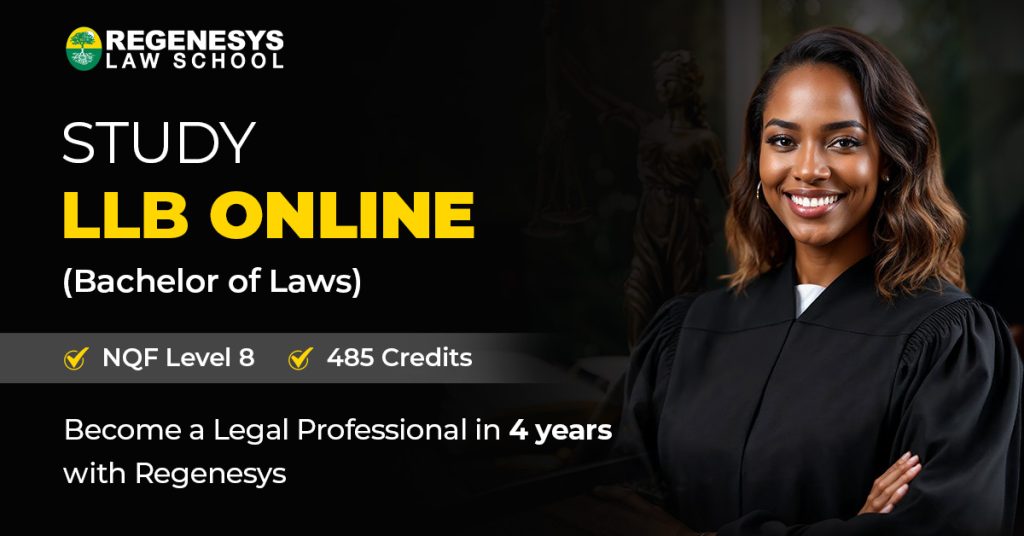Legal education in South Africa is the foundation of the country’s legal system, playing a crucial role in its pursuit of justice and equality throughout the nation. Law schools in South Africa are not just places of learning; they are essential in shaping the values that uphold constitutional democracy. These schools have the important task of training future lawyers who are knowledgeable about the law and skilled in critical thinking, ethical decision-making, and real-world problem-solving skills, which are vital for addressing the complex legal issues of a diverse and evolving society.
This article will discuss the difference between private and public law schools, the admission requirements for law schools, and how much does law school cost in South Africa.
Table of Contents
Accredited Law Schools In South Africa
In South Africa, several law schools are approved by the Council on Higher Education (CHE) and the Legal Practice Council (LPC). These schools are recognised for maintaining high education standards, making them influential choices for students wanting to pursue a legal career.
Accreditation is crucial when choosing a top law school in South Africa, as it ensures the institution meets the high standards required for legal education. Accreditation guarantees that the curriculum is rigorous and up-to-date and that graduates are eligible to practise law in South Africa, providing them with a solid foundation and professional credibility in the competitive legal field.

Importance Of Accreditation
Accreditation plays a crucial role in ensuring that a law school delivers a high standard of education. This official recognition has significant implications for students and their future careers. Here’s why it matters:
- Quality Education: Accreditation means the school provides a high-quality education, crucial for training skilled legal professionals.
- Better Job Opportunities: Employers often prefer graduates from accredited law schools because they demonstrate a solid education.
- Credit Transfers: Accredited institutions are more likely to accept your credits if you want to transfer to another school.
- Access to Financial Aid: Many financial aid options are only available to students at accredited schools, so accreditation can help you get funding for your studies.
- Professional Recognition: In many areas, you must graduate from an accredited law school to take the bar exam and become a lawyer.
How To Verify Accreditation Status
Before you choose a law school in South Africa, it’s important to check if the school is accredited. Going to an accredited school means you will get a quality education that meets the standards of the Council on Higher Education (CHE) and the Legal Practice Council (LPC). Here’s how you can check if a law school is accredited:
- Visit the CHE Website: Check the Council on Higher Education website for accredited schools.
- Consult the Legal Practice Council (LPC). The LPC’s resources list highlights the schools approved for legal training on their website.
- Contact the School Directly: Ask the law school for proof of its accreditation.
- Check School Publications: Look for accreditation details on the school’s website or brochures.
Types Of Law Schools In South Africa
South Africa has a variety of law schools, each offering programmes that suit different educational needs and career goals. These schools can be grouped into public universities, private universities, and specialised law schools. Public universities usually offer a wide range of law degrees and diplomas, focusing on academic theory and legal research. Private universities often provide flexible study options and emphasise practical legal skills and academic learning. Specialised law schools in South Africa focus on specific areas of law, like paralegal studies or corporate law.
These schools are great for students who want to quickly start a career in law or specialise in a particular field. With these different options, students in South Africa can choose the type of law school that best matches their career goals and learning preferences.
Differences Between Private And Public Law Schools
Choosing between public and private law schools involves understanding their fundamental differences, as each type offers unique benefits. The main differences include how they are funded, their tuition costs, class sizes, and acceptance rates. Here’s a simple comparison to help you decide which type of law school might be the best fit for you:
| Aspect | Public Law Schools | Private Law Schools |
| Funding | Public law schools are mainly funded by the government, which helps keep tuition fees lower. | Private law schools rely on alumni contributions for funding. |
| Tuition Costs | Tuition at public law schools is usually lower. | Tuition at private law schools can be higher comparatively. |
| Miscellaneous Fees | Additional fees for campus resources are generally lower at public schools. | Private schools often have higher fees due to extra costs for campus resources. |
| Overall Size | Public law schools are larger and have more students enroled. | Private law schools are smaller, with fewer students. |
| Acceptance Rates | Public law schools accept a higher percentage of applicants. | Private law schools are more selective, admitting a smaller percentage of applicants. |
| Admission Requirements | Public law schools have more relaxed requirements, accepting students with lower test scores and GPAs. | Private law schools have stricter requirements, often needing higher GPAs, LSAT scores, and additional qualifications. |
| Classes Available | Public law schools can offer a greater variety of courses due to having more faculty members. | Private law schools may offer fewer courses but often have more experienced professors. |
Law Schools In South Africa Admission Requirements
To apply for a law degree in South Africa, you need to meet specific requirements set by law schools. These requirements ensure you have the right skills and background to succeed in your studies. Generally, you must have completed Matric (high school) and be good at English. Knowing these requirements will help make your application process smoother, whether you are a local or international student. Every institution has a different set of requirements for enrolment in their programmes.
The admission criteria for Regenesys Law School are designed to be easily accessible to aspiring students. Here’s what you need to know if you want to apply:
- Matriculation Requirements: You must have completed Matric with a Bachelor pass or have an equivalent qualification at NQF level 4.
- English Proficiency: South African students need at least 50% in First-Language English or 60% in Second-Language English. A pass equivalent to 26 APS points is usually required for international students from Africa applying with A levels.
- Alternative Entry Requirements: If you don’t have a Bachelor pass, you can still apply if:
- You are over 23 years old.
- You have at least three years of relevant work experience.
- You have a schooling leaving certificate (Grade 12 or O levels).
- You have completed additional short courses.
- You can show you are proficient in English.

Tips For A Successful Application
Applying to law school can be a competitive and detailed process. Preparing thoroughly and presenting your best self is essential to stand out and improve your chances of acceptance. Here are some tips to help you create a strong law school application:
- Start Early: Begin your application process ahead of time. This will give you enough time to gather all necessary documents, write your essays, and meet deadlines.
- Research Schools: Learn about the requirements and values of each law school you apply to. Customise your application to show how you fit with their programmes.
- Write a Strong Personal Statement: Create a personal statement that shares why you want to study law, discuss your related experiences, and explain your career goals.
- Get Good Letters of Recommendation: Ask for recommendation letters from people who know you well and can highlight your strengths and achievements.
- Prepare for Interviews: If interviews are part of the process, practice answering common questions to present yourself confidently.
- Proofread Everything: Check your application carefully for mistakes. Review your essays, CV, and other documents before you submit them.
- Show Your Passion: Highlight your interest in law through your involvement in relevant activities, work experience, or internships.
How Much Is The Fee For Law Schools In South Africa?
Law schools in South Africa generally have a varied fee structure depending on the institution. Public universities are more affordable, and private law schools are more expensive. Tuition fees can vary depending on funding sources and available resources for every institute.
Besides tuition, students must plan for extra costs like books, accommodation, and other living expenses. These additional costs can add up and affect your overall budget. Many students seek financial aid or scholarships from universities, government programmes, or private organisations to help cover these expenses. These financial aspects can help future law students plan better and manage their costs effectively.
Here, at the Regenesys Law School, we also offer instalment payment options, making it more manageable for students to finance their education over time.

Explore Our Other Programmes
Conclusion
Choosing the right law school in South Africa is crucial for a successful legal career. Whether considering accredited law schools or exploring the differences between private and public institutions, each option offers unique advantages. Understanding admission requirements and tuition costs is essential for top law schools in South Africa, like Regenesys Law School. You can find the best fit for your educational and professional goals by carefully evaluating your choices.
Ready to start your legal career? Discover Regenesys Law School’s Bachelor of Laws (LLB) programme, offering a blend of theory and practical skills. Our programme provides quality education to prepare you for success. Contact us today!

FAQs
What are the top law schools in South Africa?
The top law schools in South Africa include the University of Cape Town, the University of the Witwatersrand, the University of Pretoria, Regenesys Law School, and Stellenbosch University.
How can I find accredited law schools in South Africa?
You can check the Council on Higher Education (CHE) or the Legal Practice Council (LPC) websites or contact the schools directly.
What are the differences between private and public law schools in South Africa?
Private law schools often have higher tuition fees and smaller class sizes, while public law schools are usually funded by the government and have lower fees.
What are the admission requirements for law schools in South Africa?
Generally, you need a Matric certificate with a Bachelor’s pass, good English marks, and sometimes additional qualifications or work experience.







